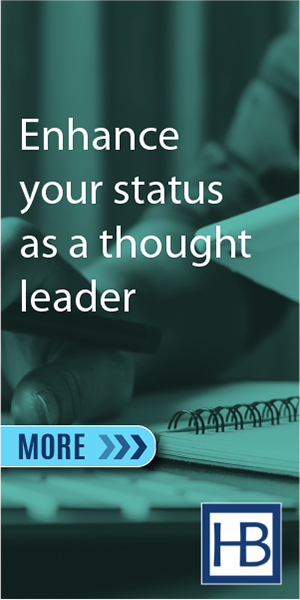As a trusted advisor, most of you would never think of canceling or rescheduling meetings with clients at the last minute unless it was an absolute emergency. But when you constantly reschedule with your team, your prospects, your strategic partners, your vendors, your consultants and even your family, you could be doing irreparable harm to your personal brand. Word gets around fast in this digital age and what you’re telling people is this: “My time is more valuable than yours.”
Beyond hubris, some of the folks you keep canceling on have a higher hourly billing rate than you do – so that’s what, hubris-squared!? No one likes to feel marginalized – ask your spouse or kids how that feels. You’re also not being trustworthy and reliable.
As Stephen Covey details in his book The Speed of Trust, you’re not being trustworthy when you fail to honor commitments that you freely made. It also implies that can’t manage your time or your business very well. None of these outcomes are very good for someone deemed a professional. Again, word gets around fast these days.
“Keeping commitments is a sign of maturity” wrote Whitney Johnson, CEO of Disruption Advisors, in a Harvard Business Review essay. “It’s difficult to hold your subordinates accountable when you don’t hold yourself accountable,” added Johnson. “How do we inspire commitment in those we lead when it’s obvious to them that commitment is a negotiable principle for us?”
Lessons from Sinatra and Michael Jordan
Rory Henry, Director, Arrowroot Family Office and host of the AFO Wealth Management Forward podcast told me the other day that when you’re constantly cancelling or rescheduling meetings, it’s often a symptom of being “overworked or unmotivated.” When you optimize your business and relationships, said Henry, “your business meetings become like standing reservations for both parties involved. It’s the type of mutually beneficial relationship Frank Sinatra had with Patsy’s Italian Restaurant in New York and that Michael Jordan had with Gibson’s Bar & Steakhouse in Chicago.”
Both Sinatra and Jordan not only received exceptional service, said Henry, but their consistent presence also greatly benefited these establishments through their ongoing support. “In business, when you consistently look forward to meeting so much so that you don’t feel the need to cancel or reschedule, it’s a strong indicator of fulfilling and productive work relationship,” noted Henry, author of the forthcoming book Holistic Guide to Wealth Management.
“Regular, anticipated, and punctual meetings reflect a mutual respect and value for each other’s time and contributions, similar to the mutual benefits enjoyed by Sinatra and Jordan and their favorite restaurants,” added Henry.
Josh Patrick, Senior Advisor, Stage2 Planning Partners, and a New York Times guest blogger told me that there is a “national feeling” that being civil is a thing of the past. “That includes those who feel that ghosting is an OK thing to do,” said Patrick. “Too often, we say yes, and then we decide we don’t want to do whatever it is we said yes to,” said Patrick. “We then are rude or worse when we don’t show up.”
Patrick believes that social media and the fact that we can hide behind our screens and keyboards when being rude to others plays a role. “I also think that if you watch conservative news, you are in a constant state of rage and that rage overflows into other parts of one’s life like disrespecting people and the value of their time,” added Patrick.
Johnson agreed. “Never has canceling been easier and less painful for us than it is in the age of text message,” she wrote. “We can cancel without ever having to speak with, much less meet, someone. We can cancel five minutes ahead and without explanation. Just tack on an emoticon to our message, and we can convince ourselves that it’s almost the same as if we’d met our obligation.”
Like Johnson, Henry and Patrick, I believe rudeness is a factor, but when it comes to professionals and other high achievers, a bigger contributor is the misguided belief that “busier is better.” Too many folks with lots of credentials after their name are unrealistic about how much they can get done in a day, week or month. Thanks to technology and being connected 24/7 we think we can get more done in less time than is realistically possible, so we over-schedule, over-commit and under-deliver. All of these outcomes will come back to bite you in the long run.
As Johnson related, once she stopped constantly rescheduling her commitments and actually committed to them on the original date and time, her stress level went down significantly. “As I kept more and more commitments, I got more and more confident. And I learned how long things really take, so I got better and better at giving estimates on when I could deliver,” Johnson added.
Steps you can take
1. Stop making excuses. Excuses are like garbage cans. Everybody has ‘em and they all stink.
2. Prioritize. Start your day by identifying the three most important things you must get done in the next 8-10 hours and focus intently on those.
3. Find ways to show up no matter what. I don’t know if 90% of life is just showing up
4. Empathize. Think how it feels to be canceled or kept waiting constantly when you’ve come to an appointment prepared.
Conclusion
You’re an Elite Professional; Don’t Act Like a Jamoke. As Golda Meir famously said: “I must govern the clock, not be governed by it.” How are you managing your time and relationships with vendors, prospects, strategic partners and your team? I’d love to hear from you and why.
#timemanagement, #respect, #practicemanagement











Regarding attaining and maintaining a spirit of civility, I believe it is necessary to have frequent face-to-face gatherings with other people, if for no other reason than to have a sounding board to get feedback on whether one’s actions, thoughts, and plans resonate with others. It is also the best way to bond with people on multiple levels beyond merely the business at hand. It’s also an opportunity to have others reveal previously hidden facets about us.
Warren Buffet said that the best investment one can make is in oneself. He also said that one of the greatest satisfactions in life is to be able to duplicate oneself by starting a company, wherein other people can help accomplish what one person alone cannot do. I keep reminding myself that the word “company” comes from Latin “com” (together) and “panis” (bread) originally to describe a gathering of merchants sharing bread, drink, and stories. Through the millennia, breaking bread with others has been one of the greatest ways to bind people together in pursuit of the fruits of their labor, or to just know how to lead a good life.
Research indicates, even in a face-to-face meeting, over half of the communication can be non-verbal; a clenched fist, the tapping of one’s fingers, or crossed arms, could signal very different attitudes than the words spoken. Reading these signals is crucial to understanding how to communicate on an emotional level with others, to be closer to the core of what others are feeling and thinking. All this communication can be lost in emails, texting, phone calls, even in video-conference calls. Thus, people aspiring to run a company should realize the importance of breaking bread with people, often. This is how we come closer to realizing our potential and to help others realize their potential. As part of this, we must understand that others may perceive more about our potential than we do, because often our friends, and others who mean well for us, know parts of us better than we do, so they can nourish us in ways we could never have imagined. But we must take the meeting first. Otherwise, we never know what’s possible.
— Jeffrey Wyant, Director Business Development, Coast to Coast Fulfillment